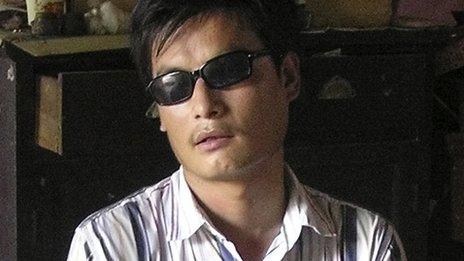Julian Assange: UK wants 'amicable solution'
- Published
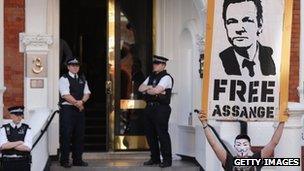
Julian Assange took refuge at Ecuador's embassy in London in June
The UK says it wants an "amicable solution" to the diplomatic crisis over Wikileaks founder Julian Assange after Ecuador granted him political asylum.
It comes as its government said it had received a call from the UK Foreign Office saying temperatures on both sides needed to be cooled down.
The Foreign Office would not comment.
Mr Assange took refuge at Ecuador's embassy in London in June as he faced extradition to Sweden over sexual assault claims, which he denies.
Ecuador announced on Thursday it had granted Mr Assange asylum, saying that his human rights might be violated if he is sent to Sweden.
Extradition guarantees
The Foreign Office said it would not give a "running commentary" on what contacts had been made with the Ecuadoreans.
But a spokesman said: "We hope that we can reach an amicable solution to the situation."
An Ecuadorean government spokesman said they received a phone call from the Americas desk at the Foreign Office with a message they believed had come from Foreign Secretary William Hague.
Ecuador 'acted on principle' Foreign Minister Ricardo Patino said in an interview with BBC Mundo
The spokesman said that "as a result both sides will go back to near normal diplomatic conversations in seeking a solution to Mr Assange" and what would happen to him after completion of legal proceedings in Sweden.
The Ecuadoreans say they are looking for guarantees that after any trial in Sweden there would be no further extradition, and for safeguards over how Mr Assange would be held in Sweden would be met.
Meanwhile, an extraordinary session of the Organization of American States (OAS) has begun in Washington to consider the situation between the UK and Ecuador, with the Ecuadorean representative taking the floor.
The US, meanwhile, has said it "does not recognise the concept of diplomatic asylum as a matter of international law".
"We believe this is a bilateral issue between Ecuador and the United Kingdom and that the OAS has no role to play in this matter," the US state department said in a statement.
The UK and Sweden have criticised Ecuador for granting political asylum to Mr Assange.
The UK has said it will not allow him safe passage out of the country but Ecuador's Foreign Minister Ricardo Patino said he hoped talks with the UK would "overcome this".
Legal obligations
Swedish Foreign Minister Carl Bildt said his country would not be lectured by Ecuador.
Ecuador has said Mr Assange's human rights might be violated if he were sent to Sweden to be questioned over allegations that he sexually assaulted two female Wikileaks supporters while he was in Stockholm to give a lecture in 2010.
The Wikileaks website has published a mass of leaked diplomatic cables that embarrassed several countries, particularly the US.
The 41-year-old Australian citizen, who claims the sexual contact was consensual, has said the allegations against him were politically motivated and he feared that, if extradited to Sweden, he would then be passed on to US authorities.
The Foreign Office has said it remained committed to reaching a "negotiated solution" but following its obligations under the Extradition Act, it would arrest Mr Assange if he left the embassy.
In a statement issued after the Ecuadorean decision to grant Mr Assange political asylum, Mr Hague said the UK was under a "binding obligation" to extradite him to Sweden.
In Sweden, foreign ministry spokesman Anders Joerle said it was "unacceptable that Ecuador would want to halt the Swedish judicial process".
Claes Borgstrom, the lawyer for the two Swedish women making the sexual assault complaints against Mr Assange, said their ordeal seemed to have been overlooked by Mr Assange's supporters.
- Published17 August 2012
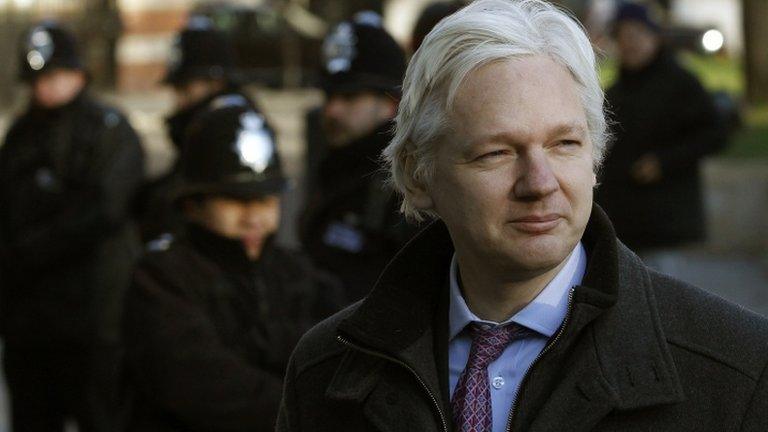
- Published17 August 2012
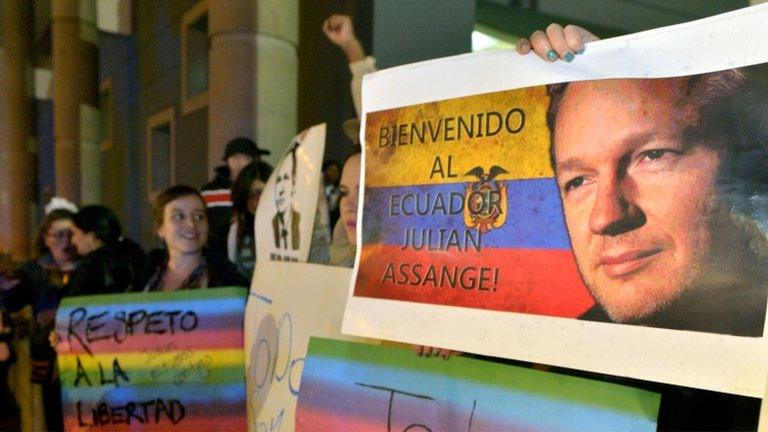
- Published25 June 2024
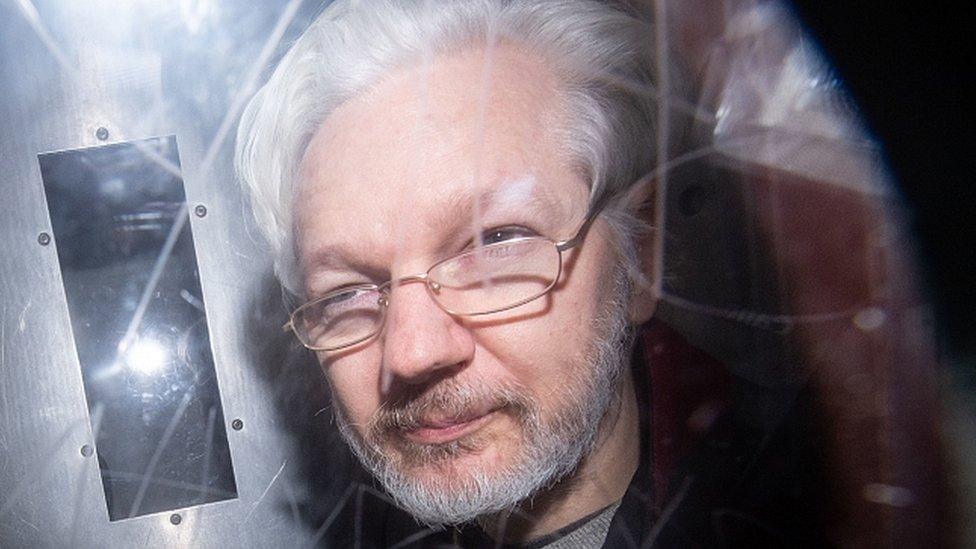
- Published16 August 2012
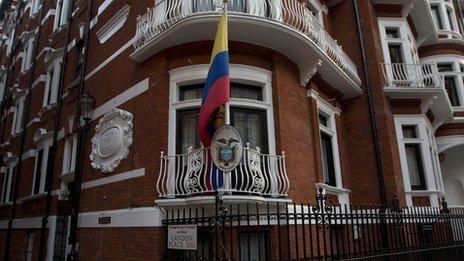
- Published16 August 2012
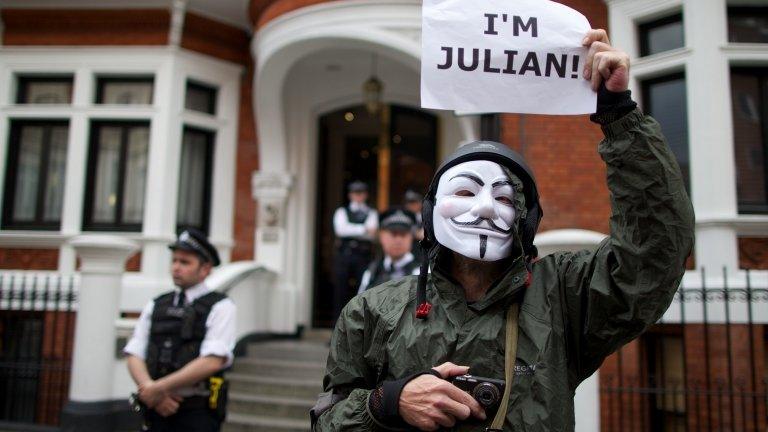
- Published16 August 2012
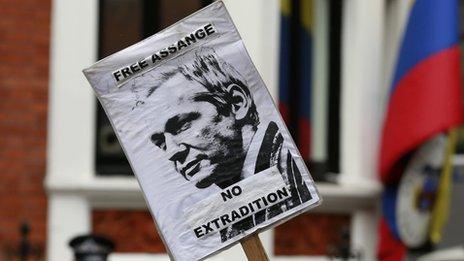
- Published16 August 2012
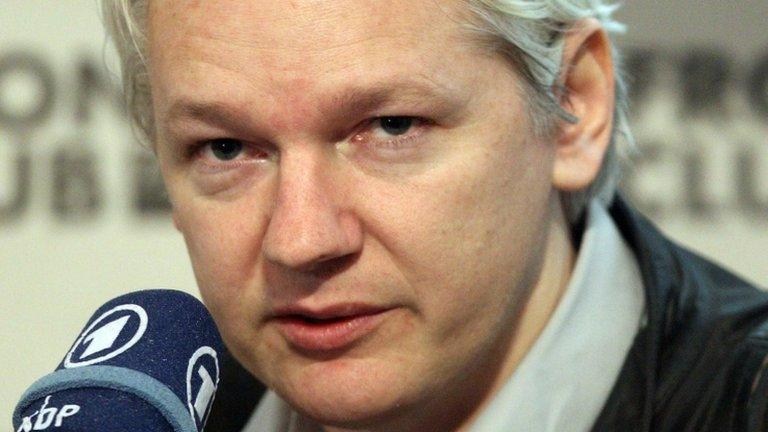
- Published26 June 2024
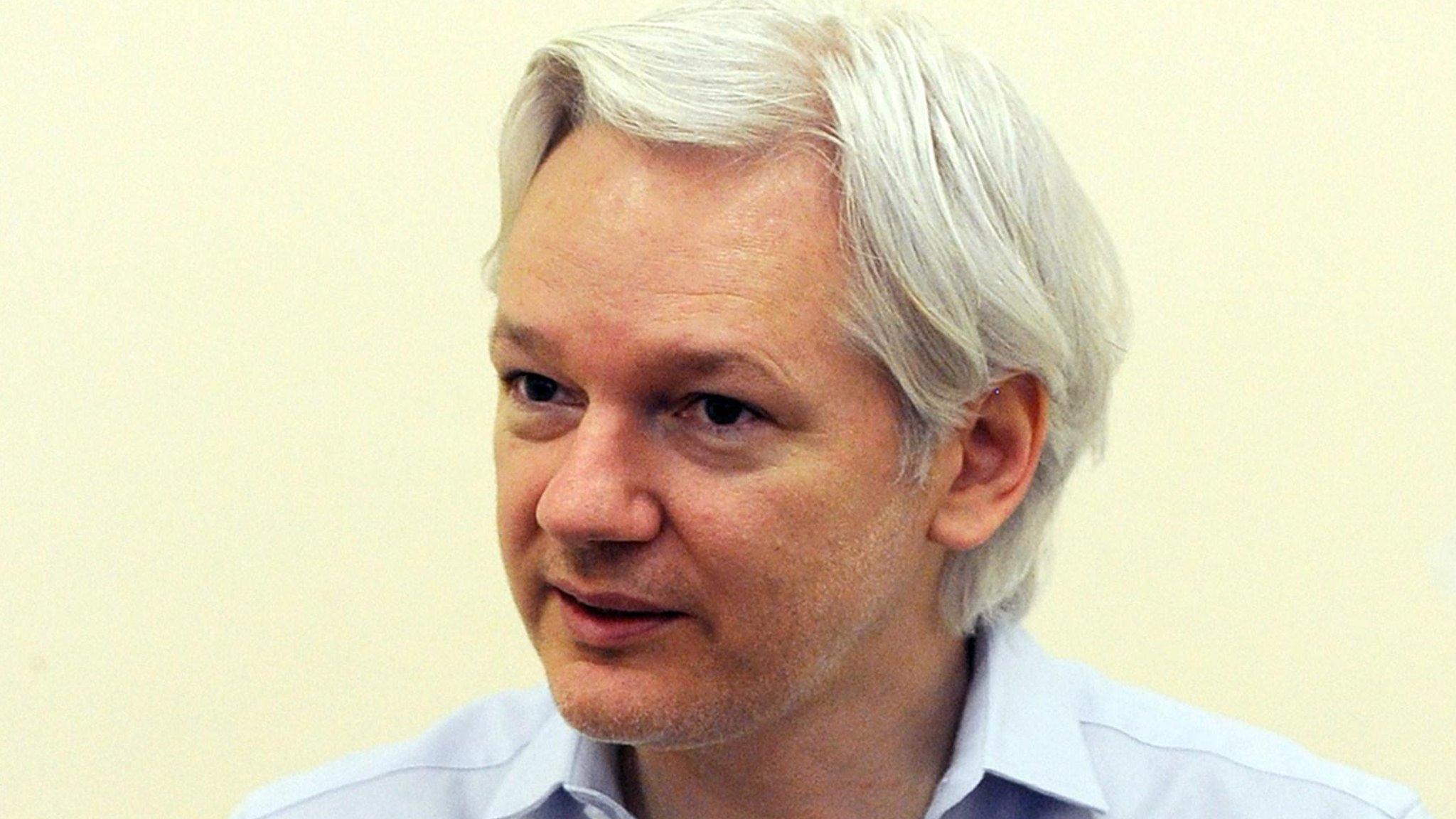
- Published2 May 2012
